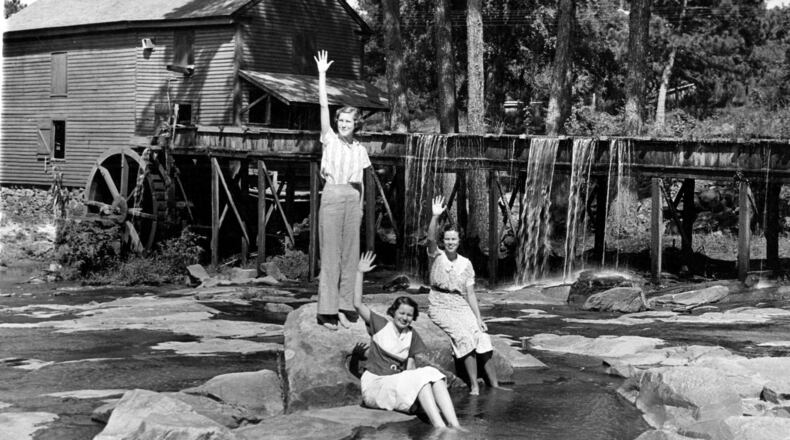Q: What is the history of Indian Springs State Park and do any ruins or old structures remain there?
A: Indian Springs State Park in Flovilla, about 60 miles southeast of Atlanta, is one of the oldest state parks in the nation, said Kim Hatcher, spokeswoman for Georgia State Parks and Historic Sites.
In 1825, Creek Chief William McIntosh signed an illegal treaty, deeding the Indian Springs land to the Georgia government, according to Georgia State Parks and Historic Sites. The land was eventually sold at public auction in 1828, following the signing of a valid treaty.
In 1927, Indian Springs became a state forest park, used solely for timber. Soon after, the forestry board was reorganized and a state park division was established.
In 1931, Georgia established its first state parks — Indian Springs in Butts County and Vogel State Park in Union County. Hatcher said many of the structures at Indian Springs were built by the Civilian Conservation Corps in the 1930s, including the stone Spring House through which the park’s mineral spring waters flow.
Located just off I-75 in middle Georgia, the park offers camping, geocaching, mini golf and the nearby Dauset Trails Nature Center, said Hatcher. The park's stone pavilion is also a popular wedding destination, she said.
Katherine Darsey, Indian Springs State Park manager, said a 500-seat conference center is currently being built to help accommodate larger weddings and corporate events.
During its heyday in the 1800s, 10 hotels attracted visitors to Indian Springs, but today, only one remains. The Indian Spring Hotel, built in 1823 by McIntosh, remains on the park property, but has been converted into a museum. The park offers campsites and 10 cottages, some of which have undergone improvements, that guests can reserve, Darsey said.
Its 150-acre Lake McIntosh has a boat ramp and a swimming beach, and the park is still waiting to reopen Lake McIntosh for fishing due to recent dam repairs, said Hatcher.
One of the largest draws is the park’s natural spring. Hatcher said people will line up to collect the spring water, because the mineral waters are believed to have healing qualities.
“We have a mineral analysis of the spring water that we give park guests, detailing what can be found in the water and what ailments it may help,” Darsey said. “The minerals are said to help anything from gout to stomachaches to cancer. People still come to the park every day to gather the spring water. Some people won’t drink anything else.”
If you’re new in town or have questions about this special place we call home, ask us! E-mail q&a@ajc.com or call 404-222-2002.
About the Author
The Latest
Featured


